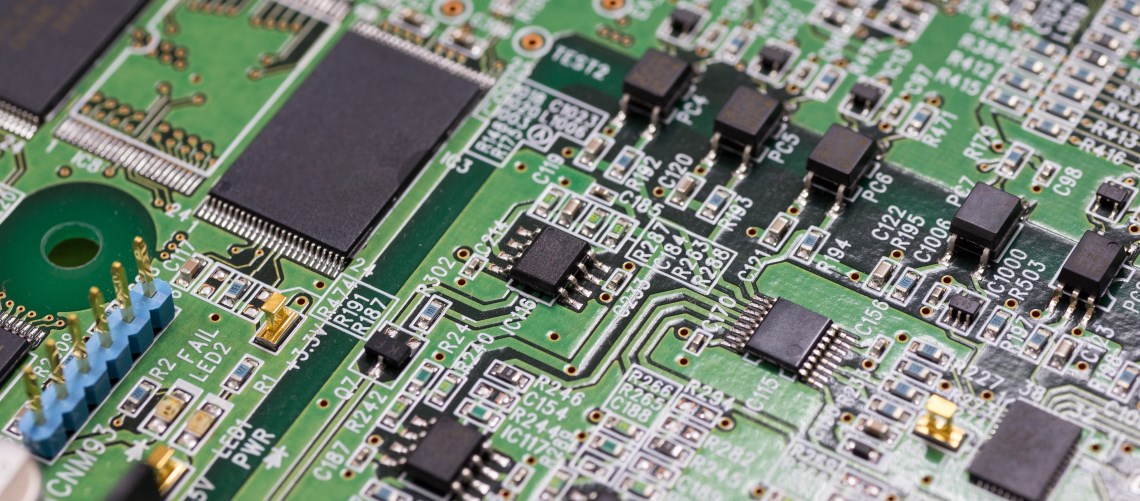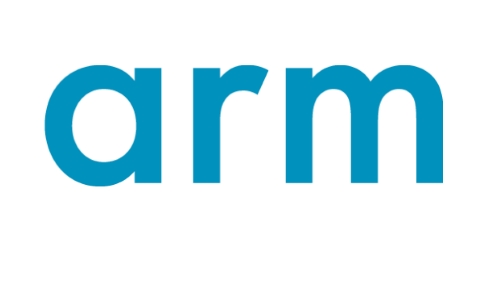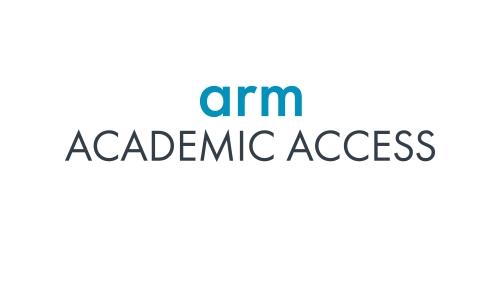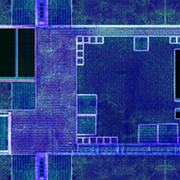Arm Centre of Excellence
Our Centre of Excellence (CoE) expertise covers the full spectrum of modern processor technologies, machine learning theory and applications, and automation of reasoning to formally build verifiable trustworthy hardware and software systems.

The University of Manchester Computer Science Department has had a long and productive partnership with the Arm Research and Development team.
This relationship includes multiple collaborative research projects, co-authored research publications, and joint PhD studentships across diverse research areas.
The members of our CoE have research interests including:
-
Advanced processor technologies
We investigate, develop and evaluate advanced and novel approaches to processing and computation, emphasising identifying novel ways to exploit the formidable complexity of the multi-billion transistor microchips available today.
Find out more
-
Machine learning and robotics
We investigate and develop modern dimensionality reduction methods, preserving local and global structure relationships. We also scientifically contribute to the foundations of information-theoretic variable selection and state of the art Deep Learning methodologies applied in image and video understanding.
Find out more
-
Systems and software security
We develop algorithms, methods and protocols to address security and privacy in distributed embedded applications and tools to build verifiable, trustworthy software systems. Our expertise covers a broad span of topics, including digital trust, security, and privacy.
Find out more
Existing collaborations
Discover more about some of the projects we're currently running in collaboration with Arm.
SpiNNaker
The SpiNNaker project has been 20 years in conception and 15 years in development. It has delivered the world’s largest neuromorphic computing platform incorporating over a million Arm processors that is used to support an open neuromorphic computing service under the auspices of the EU Flagship Human Brain Project. In addition to the million-core machine at Manchester, around 100 smaller SpiNNaker machines have been loaned and sold to research labs around the world.
The primary goal of the SpiNNaker project is to support brain science, with real time models of various brain regions already developed, but interest is n potential commercial applications are growing. The second generation SpiNNaker2 system, where each chip incorporates 153 ARM Cortex M4F cores, has been co-developed with TU Dresden, and SpiNNcloud Systems GmbH has been set up to commercialise the technology.
Near-data acceleration of machine learning
Nikolaos Kyparissas (PhD candidate) is investigating near-data acceleration of machine learning under the supervision of Professors Mikel Luján and Gavin Brown. In contrast to traditional computer systems, this project aims to exploit the increased capabilities of memory systems and understand the opportunities that near-memory processing offers for machine learning workloads. The Department of Computer Science Kilburn Award and Arm, as part of the Arm / RAEng Research Chair award, support Nick’s work.
IoT and embedded smart systems
Filippos Ventirozos (PhD candidate) and his supervisory team, Riza Batista-Navarro and Sarah Clinch, are researching textual data for end-user programming of IoT kitchen devices. This project brings together natural language processing, human-computer interaction and software engineering / modelling. Arm has been funding this project and has given Filippos an internship opportunity to work on machine learning applications running on the next-generation Corstone IoT chip. The Corstone silicon designs prioritise privacy and security -- critical aspects of IoT applications in domotic environments. This collaboration has enabled us to broaden our horizons on the future uses of IoT and embedded smart systems use cases.
Agile Prototyping of accelerators and processors harnessing reconfigurable hardware
Konstantinos Iordanou (PhD candidate) investigates the interaction of specialised compute kernels with processors in modern systems and their overall impact on system performance. In particular, he explores and understands the design process of hardware kernels for domain-specific applications that can co-exist efficiently with processors in a heterogeneous system.
Konstantinos is creating the design tools and methodologies, which will assist in simulating from the architectural and microarchitectural perspectives. During his internships at Arm Research in Cambridge, he focused on exploiting parallelism at loop-level mainly by studying the effects of various parallelisation strategies, constraints and data dependencies across loops. This work is funded by Arm and EPSRC.
Round-trip test engineering for legacy system re-engineering
One surprising discovery of the software era is the phenomenon of software rot. Over time, software becomes progressively more costly to change. This is especially true of software that is well used. Constant changes to the features offered by the software gradually degrade the design and add complexity until it becomes what is called “legacy software”: software that is too valuable to lose and too expensive to keep.
Periodically, such systems need to be rebuilt from scratch. But throwing away the old code means also throwing away much of the organisational expertise about the system. In this fellowship, Suzanne Embury will build tools to extract this expertise from legacy systems in the form of reusable test artefacts that will transfer to the new implementation. To achieve this, she will use novel information sources, including code change history and issue trackers, to reduce the costs and risks of system rebuild.
Get in touch
If you are interested in collaborating with our Arm Centre of Excellence, please contact Lucas Cordeiro.
Award-winning software
Our CoE develops and maintains the MAMBO open-source tool, which is used to analyse Arm binary programs. We also design and support award-winning software verification and testing tools, including ESBMC (Efficient SMT-based Bounded Model Checker) and JBMC (Java Bounded Model Checker). Over the last ten years, these tools have consistently won international software verification and testing competitions, focusing on security.
Research grants supported by Arm
Arm supports the following research grants at the CoE:
- EU Horizon 2020 project EuroEXA: Technologies to meet the demands of ExaScale computing
- EPSRC project SCorCH: secure code for capability hardware - over the call for ISCF digital security by Design Research Projects.
- UKRI project Soteria: demonstrating the security capabilities of the Morello System in the e-commerce vertical industrial segment - over the call for ISCF digital security by design: technology-enabled business-led demonstrator.
- MoatE - A cyber-security business demonstrator project for Edge Computing. MoatE will deliver a Morello-based demonstrator for Edge-facilities, adding value in the areas of cyber-security, resilience, operational management, and efficiency.
People
CoE researchers
- Sarah Clinch
- Suzanne Embury
- Timothy Hartley
- Konstantinos Iordanou
- Nikolaos Kyparissas
- Riza Theresa Batista-Navarro
- Filippos Ventirozos
University directors of the CoE
- Gavin Brown - Deputy Director
- Lucas Cordeiro - Director
- David Jackson - Technical Director
- Mikel Lujan - Deputy Director
Arm directors of the CoE
- John Goodenough - Deputy Director
- Andrea Kells - Director

Arm research
Find out more about Arm in-house research and collaboration with academic and industrial partners.

Arm Academic Access
Find out more about Arm Academic Access membership.



